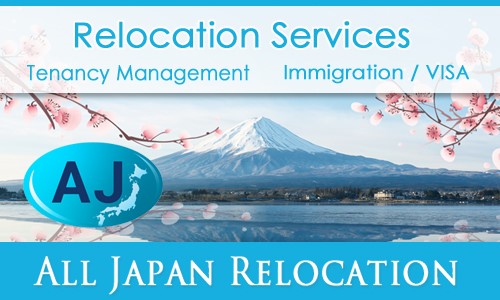Eikaiwa Teacher vs. ALT: Schedule and Work-life Balance

For many English-speaking foreigners who would like to live in Japan, the most common and sometimes only option for work is to teach English. While Japanese career sites always have a number of available English teaching positions posted, an important choice must be made on which type of employer you would like to consider: a private eikaiwa (English conversation) school or the Japanese public school system, either hired directly through the board of education or a private dispatch company.
There is a considerable amount of overlap between being an eikaiwa teacher at a private business and an assistant language teacher (ALT) at a public school, but there are also many differences that will have a direct impact on your work-life balance. Keep reading to find out what you should consider when searching for English teaching jobs in Japan.
Eikaiwa Teacher vs. ALT Work Schedules
One of the biggest differences between eikaiwa schools and the public school system is when and how much you will be expected to work. This includes work hours, weekly schedules, and holidays.
Standard Work Hours
Eikaiwa Teacher
At an eikaiwa school, you can expect to work a consecutive schedule or a block schedule, and the working time may be consistent throughout the week. It depends on the volume of students and the school’s needs.
For example, in a consecutive schedule, you could work from 9:00 a.m. to 4:00 p.m., or possibly even as late as 1:00 p.m. to 10:00 p.m. with any variation of time in between. Lunch breaks vary in this schedule. In a block schedule, you could work from 9:00 a.m. to 1:00 p.m. and then again from 5:00 p.m. to 9:00 p.m. The free time between classes can be used to take care of personal errands such as visiting the city office, but the block schedule also makes it difficult to have a social life after work and can be draining if you’re used to working a standard eight-hour shift.
ALT
One significant advantage of being an ALT is that you typically have a standard 8:00 a.m. to 4:00 p.m. work schedule. Lunch breaks are consistent, but you will be expected to eat and mingle with the students during the break depending on your school or contract. Also, there may be occasional half days that allow you to leave work after 1:00 p.m. If you volunteer to participate in club activities, you may end up staying at the school until 7:00 p.m.
Days Off
Eikaiwa Teacher
Working for an eikaiwa school almost certainly guarantees that you will be working at least one weekend day or even both weekend days, and your days off might not be consecutive. However, there are a handful of companies that do provide two days off in a row. Conversation schools have a work week that starts from Tuesday and finishes on Saturday. Some, but rarely, are Monday through Friday. Furthermore, there will likely be days that you’re required to come in when the office is closed for work, cleaning, or planning.
ALT
Whether being hired through a dispatch company or the board of education, you almost certainly will be working Monday through Friday. Sometimes, even though it's a holiday in the middle of the work week, you may have an “office day” that you're required to attend. Like at an eikaiwa school, these days are dedicated to lesson planning and preparation, so you might have to attend all day or a half day, even though you have all your lessons planned.
Holidays
Eikaiwa Teacher
Because eikaiwa schools schedule their classes around student availability, it’s important to understand how a potential school will allot national holidays to its employees. In some rare cases, the school will follow the national holiday calendar. However, this is often not the case.
Some schools organize holiday breaks to occur before or after the official holiday. The school may even break up longer holidays like Golden Week, Obon, and winter breaks, and spread the employees’ holiday time over the course of the year. For instance, rather than providing a week off for Golden Week, the school would give you an equivalent amount of days broken up into two- or three-day segments that you would need to take off as scheduled by the school.
While this makes sense from a business perspective, it can put a strain on employees, especially those raising a family in Japan.
ALT
Compared with the typical Eikaiwa school schedule, holidays for ALTs are much more straightforward. You are guaranteed to almost always have every national holiday off along with Golden Week, Obon, and winter break.
During extended holidays, you may be required to come to the school at least one day to perform office duties. Also, depending on your dispatch company or if you're a direct hire, there is an occasional chance that attendance is required for shorter holidays.
Extra-curricular Activities
Eikaiwa Teacher
One way that eikaiwa schools try to introduce students to international cultures is by organizing holiday activities, with the most popular being Halloween and Christmas events. This may come in the form of a large party at the school or off-site that you will be required to attend and possibly dress up for.
Sometimes, eikaiwa schools have off-site activities for demo lessons at local community events. This may entail providing services at a kiosk or even on a stage. Some companies provide students with the opportunity to participate in school trips, such as snowboarding, summer camps, and tours of Japan. However, the costs of these trips may or may not be paid on behalf of the teacher. You may also be asked to help students prepare for TOEIC and EIKEN tests.
ALT
While you may share your personal experiences about international holidays in the classroom, they are not celebrated as part of the public school’s curriculum. Instead, you will be expected to prepare for and participate in school events like Sports Day and Culture Festival.
There are school trips that ALTs may participate in, which often include conferences and student field trips. Whether or not you are allowed to attend depends on the school or dispatch company. Sometimes, you may also be required to help students prepare for speeches and attend school competitions outside of normal working hours.
Comparing Paid and Unpaid Holidays and Leave

Eikaiwa Teacher
For eikaiwa teachers, the pay tends to be more consistent and reliable. Usually, you are salaried. Holidays are almost always paid for. With some companies, you can take paid days off throughout the year after a certain time has passed in your contract and with good behavior. Sometimes, three, five, and even 10 days are at your disposal. You will almost always not get paid for paid time off that you do not use, so be sure to use it. Though, more often than not, personal days (such as sick days or going to the immigration office) are considered unpaid.
ALT
If you work for a direct-hire school, then you are likely to have paid holidays and personal days off that vary among schools. Your sick days are also likely to be paid for.
Dispatch companies are different and they are similarly structured to the eikaiwa school scheme. Sometimes, you’re only paid for the hours you work in a school day, and sometimes you have a monthly salary. You are likely not to get holidays, personal days, or any sick days paid for. There are some companies that provide minimal provisions for this, though.
Not Meeting Your Employer’s Expectations

Eikaiwa Teacher
An eikaiwa school is a business first and foremost. While the English teacher’s primary role is to teach English, other responsibilities often include selling classes, services, books, and materials to students’ parents, as well as walking door to door or standing outside of the local train station distributing flyers during non-class hours.
On a more fundamental level, the eikaiwa teacher’s job is to keep the student happy and ensure that the school maintains a steady stream of revenue. As such, lesson quality and customer satisfaction are key points of the job. Some companies have penalties, such as reduced work time and pay, fines, suspension, and even termination, depending on the teacher’s performance and student feedback. Whether or not this is legal is a topic for another discussion.
ALT
That's not to say that ALTs shouldn’t keep a professional demeanor. As a direct-hire ALT, the focus is keeping the school staff and the board of education satisfied.
Working for a dispatch company will have similar penalties as with the eikaiwa school. For instance, poor performance could lead to suspension and or termination. A complaint about performance from the school staff to the dispatch company could lead to monetary penalties or reduced work days leading to reduced pay.
Navigating Work Life in Japan

This can't be stressed enough — check your contract. This is very important regardless of whether you work as an Eikaiwa teacher or as an ALT. Some companies can be quite unscrupulous, it's just the truth of the industry.
Also, direct-hire ALT life is a bit different than dispatch ALT life. It's more pertinent to be cautious when working for dispatch companies. Eikaiwa companies also have their challenges, whether it's a small company or chain company, but you still need to pay attention to school calendars and what's in your contract.
Understanding the differences above is important for ensuring that you maintain an enjoyable life while living in Japan as an English teacher. The right choice — eikaiwa teacher or ALT — will depend not only on your personality and your financial situation, but also your requirements for a healthy work-life balance.
For more information on navigating work life in Japan, we suggest taking the time to read the following guides on understanding Japanese business etiquette and communication.
A Beginner's Guide to Japanese Business Etiquette
Japan Business Card Etiquette – Everything an Expat Should Know
Japanese Verbal & Nonverbal Communication for Business
Gifts for Japanese Businesspeople: Etiquette Tips for Expats

















